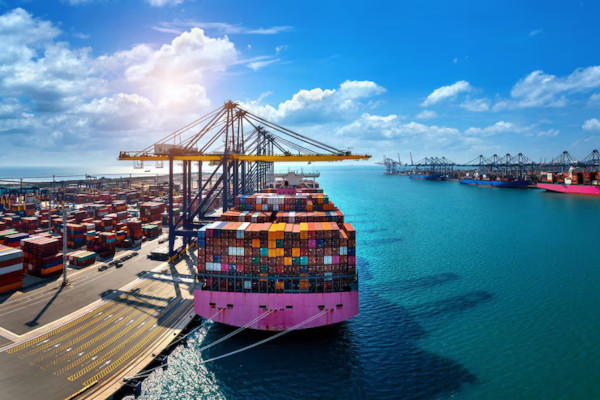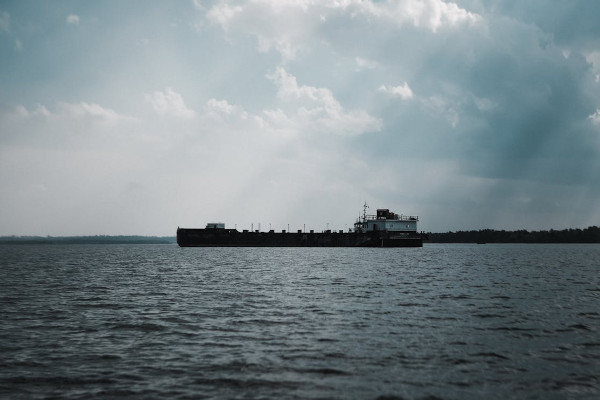About Us
India’s Expanding Role In The Global Shipping Industry
India, often referred to as the “land of diversity,” showcases its multifaceted prowess not only in culture and tradition but also in the domain of global trade and commerce. Amidst its vast and vibrant landscape, one sector that has been gaining considerable traction in the shipping industry. With its extensive coastline stretching over 7,500 kilometers, India’s geographical advantage positions it as a pivotal player in the global shipping network. Under Maritime India Vision 2030 government has taken many initiatives across Ports, Shipping and Waterways.
Strategic Location
Situated at the crossroads of major international shipping routes, India serves as a crucial maritime gateway connecting the East and the West. Its strategic location in the Indian Ocean not only facilitates trade between Asia, Africa, and Europe but also serves as a vital link in the transshipment of goods to and from other continents. Ports such as Mumbai, Chennai, Kolkata, and Mundra are key nodes in this global maritime network, handling a significant portion of the world’s cargo traffic.

Infrastructure Development
Recognizing the importance of maritime trade, India has been investing substantially in enhancing its port infrastructure and logistics capabilities. Major port modernization initiatives and the development of new ports under the Sagarmala project aim to bolster India’s capacity to handle larger vessels and increase efficiency in cargo handling operations. Additionally, efforts to upgrade hinterland connectivity through road, rail, and inland waterways further augment the country’s trade facilitation infrastructure.
Emergence as a Shipbuilding Hub In recent years, India has emerged as a prominent player in the shipbuilding industry, leveraging its skilled workforce and technological capabilities. Shipyards across the country are engaged in the construction of a diverse range of vessels, including container ships, bulk carriers, tankers, and offshore support vessels. The ‘Make in India’ initiative has incentivized domestic shipbuilding, fostering collaborations between Indian shipyards and international maritime firms, thus positioning India as a competitive player in the global shipbuilding market.
Digital Transformation
Embracing the digital revolution, India’s shipping industry is undergoing a transformative journey with the adoption of advanced technologies such as block chain, IoT, and artificial intelligence. Digital platforms and solutions are revolutionizing various aspects of maritime operations, including vessel tracking, cargo management, port operations, and supply chain. optimization. This digitalization drive not only enhances operational efficiency but also ensures greater transparency, security, and sustain ability in maritime trade.
Sustain Ability and Environmental Initiatives
In alignment with global efforts to mitigate climate change and reduce environmental footprint, India’s shipping industry is increasingly focusing on sustain ability initiatives. Implementation of International Maritime Organization (IMO) regulations, such as the sulfur cap and ballast water management standards, underscores India’s commitment to environmental stewardship. Furthermore, initiatives to promote clean energy sources, such as LNG-powered vessels and shore power facilities, are gaining momentum, paving the way for a greener and more sustainable maritime future.

Challenges and Opportunities
Despite its significant strides, India’s shipping industry faces several challenges, including infrastructure bottlenecks, regulatory complexities, and geopolitical uncertainties. While India boasts several major ports, they often face congestion, inefficient operations, and limited capacity to handle increasing cargo volumes. Simplifying and streamlining regulatory processes, promoting digitalization and automation, and enhancing transparency and accountability in regulatory enforcement can help reduce compliance burdens and facilitate smoother operations for industry stakeholders. In an increasingly competitive global shipping market, Indian shipping companies face stiff competition from international counterparts, particularly from countries with lower operating costs and more favorable regulatory environments. Indian shipping companies often grapple with high operational costs, regulatory burdens, and infrastructure limitations, which erode their competitiveness on the global stage.
However, these challenges also present opportunities for innovation, collaboration, and strategic partnerships to overcome obstacles and unlock the industry’s full potential. Some of the major challenges have been elaborated below.
Conclusion
India’s growing prominence in the global shipping industry is a testament to its maritime heritage, strategic advantages, and proactive initiatives. As the world increasingly relies on maritime trade for economic growth and prosperity, India stands poised to play an even more significant role in shaping the future of global shipping, driving innovation, sustain ability, and inclusive development across the seas.
In the vast expanse of the world’s oceans, India’s maritime prowess shines brightly, navigating the waves of global trade with resilience, dynamism, and vision.